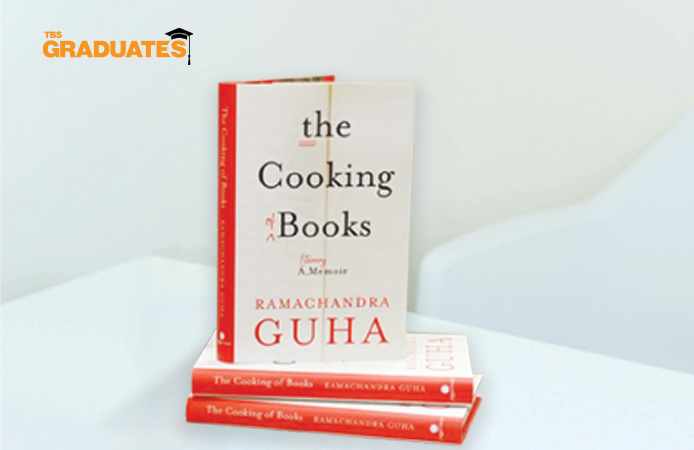More so than his books on cricket and the environment, what I have truly enjoyed most about Ramachandra Guha are his irreverent essays, particularly “An Anthropologist Among Marxists,” which I consider to be a first-rate piece from a gifted essayist.
Though known today as more of a historian of MK Gandhi, Guha’s wit and talent come across far more effectively in his generalist essays on, say, Nirad Chaudhuri or why Americans don’t like soccer. His long-time editor Rukun Advani, who had worked with Guha on numerous books, is of a similar opinion.
“I revel in pieces of perverse, spoofy logic which carry through their patently absurd and comically iconoclastic hypothesis to the bitter end, with a mask of seriousness,” he says of the soccer essay. It was from Advani’s publishing house, Permanent Black, where these essay collections have come out from, and learning that Guha’s latest book, The Cooking of Books: A Literary Memoir (Juggernaut, 2024) would deal with his relationship with Rukun Advani, I was only excited to get my hands on it.
Yet Guha’s memoir is essentially a run-down of how he had written the books he had, interspersed with some commentary from Rukun Advani, who edited and published much of them first through Oxford University Press’ India office and later through his own venture. This is not exciting by any means. One realises soon, as Guha paraphrases and explains the arguments of his numerous essays and books, that one is better off reading those material proper.
The correspondence between the editor and writer, too, is nothing extraordinary or memorable. That Rukun Advani is an exceptional editor is quite evident from the quality of the works that have come out under his tenure and I wonder what Guha accomplishes, beyond the mere tipping of the hat, in a memoir that reeks of being unnecessary.
Sensing that this might be the case, Guha himself reflects in the preface, “I suppose readers of The Cooking of Books will interpret it in different ways: as a memoir of friendship, as an elegy to a lost world, as a partition account of publishing in India, as a self-indulgent celebration of elite male privilege.” The last of these, as much as Guha wishes to convince his audience of his awareness, is a constant reminder to readers throughout the book.
Indeed, Guha’s stint at St Stephen’s College in Delhi, where the two first come across each other, is a heavy backdrop. Amitav Ghosh, Shashi Tharoor and a good many others were contemporaries and one sees how Guha revels in these high-profile connections—several times he mentions casually introducing Rukun Advani to various authors, who turn out to be mostly family members or Stephenites.
Yet the gossip in me would have no issue with The Cooking of Books being mere reminiscences of the author and the later illustrious careers of his fellow Stephenites. Yet a better use of paper would have been Guha bringing his historian’s eye to a more comprehensive account of the Oxford University Press India, where he had seemingly started his career with the help of Rukun Advani. But The Cooking of Books is neither this nor that. One fails to see how “literary” it is, either.
The reclusive and misanthropic Rukun Advani’s friendship with Ramachandra Guha is seemingly tepid. The reader is given nothing except snippets of letters one had written the other, mostly on professional matters. Clearly, Guha sees his editor as a mentor, having been awed by his intelligence since their college days. But in The Cooking of Books, he misses the mark precisely because he does not take into heart what Advani says.
“By now, Rukun was not just the editor of my books,” says Guha earlier in the book, “but of every little scrap I wrote…When the great historian EP Thompson (whom I had known slightly) died in 1993, I wrote a tribute and sent it to Rukun…”
Rukun writes back, saying, “This is an enjoyable memoir, but I’d have enjoyed it even more if you didn’t keep calling him ‘Edward.’ The use of his first name by you seems to flaunt your friendly relationship with him in the way that only the [here Rukun named a particularly pompous historian] type of Indian flaunts such friendships to boost (or so he believes) his own esteem among his readers.”
Rukun Advani goes on to suggest that Guha adopt a “sophisticated discursive modesty” and one dearly wishes Guha did the same with this book as well. As it stands, The Cooking of Books reads like an elderly businessman’s post-retirement memoir and not the works of scholarship by a charismatic historian, as Guha’s previous works had been.
Shahriar Shaams has written for Dhaka Tribune, The Business Standard and The Daily Star. He can be emailed at [email protected]. Find him on X: @shahriarshaams
